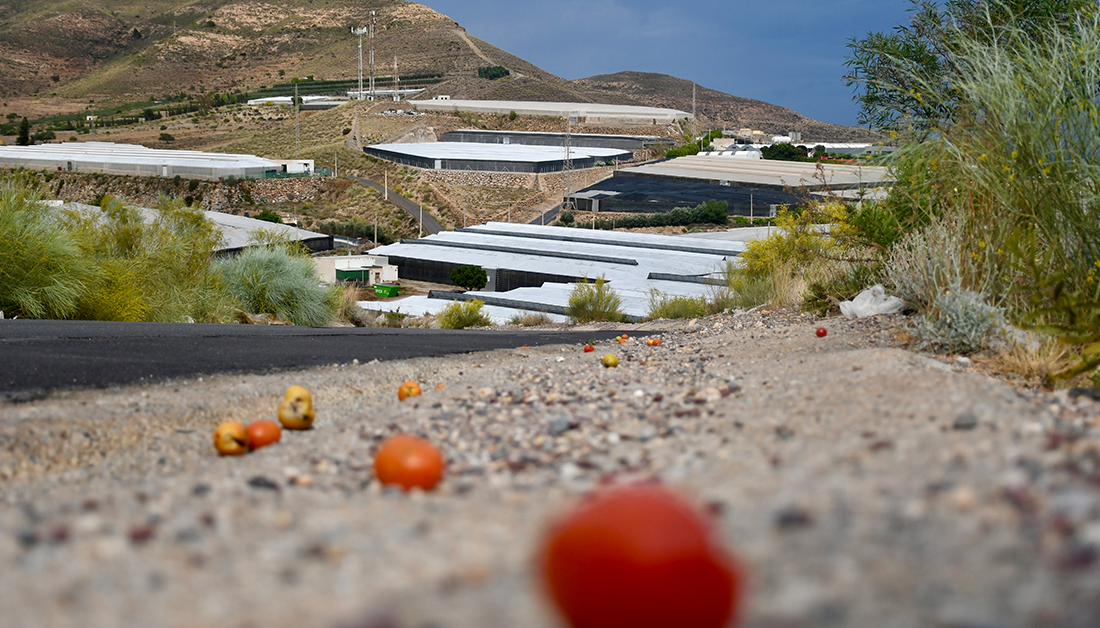‘Dry to the Bone’ explores how a deadly mix of rising temperatures and inhumane working conditions is harming the health of agricultural migrant workers in Southern Europe, with a particular focus on the regions of Puglia in Italy and Almería in Spain.
As the investigation shows, farm workers’ living and working conditions in the two countries bear many similarities, as do the institutional vacuums that allow these human rights violations to be perpetrated.
At work, whether in the fields of Puglia or the greenhouses of Almeria, most migrants are not provided drinking water or shaded areas to rest by their employers, despite being required to perform physically demanding tasks in temperatures that frequently exceed 40°C.
Many experience chronic muscle and joint pains due to their work. Meanwhile, the longer-term effects on their health are unknown, given that the governments of Spain and Italy don’t collect aggregated data on this topic.
Precarious health conditions are an even bigger problem for those who live in one of the many informal settlements scattered across Italy and Spain, with little to no access to medical care and essential services such as drinking water, electricity and toilets.
The investigation also examines corporate and institutional responsibility in producing these exploitative conditions. Based on extensive research and numerous interviews conducted by the team in Italy and Spain, it is clear that institutional oversight of what happens in agriculture is sorely lacking.
For many, working in agriculture means taking on jobs without contracts or legal protection. The veil of irregularity that hovers over the Italian and Spanish farm sectors allows employers to disregard what little legislation is put in place to protect workers from dangerous work conditions, including exposure to extreme heat.
‘Dry to the Bone’ links the lived experiences of agricultural migrant workers to the food products we all know and use. Do large food distributors and manufacturers share responsibility by driving prices down to where agricultural production is only achievable through labour exploitation? In a supply chain riddled with exploitation, what hope is left for the workers on the lowest rung of the ladder trying to make a living while struggling to stay alive?
The team:
- Sofia Alvarez Jurado, independent journalist
- Claudia Colliva, independent journalist
- Giada Santana, independent journalist
